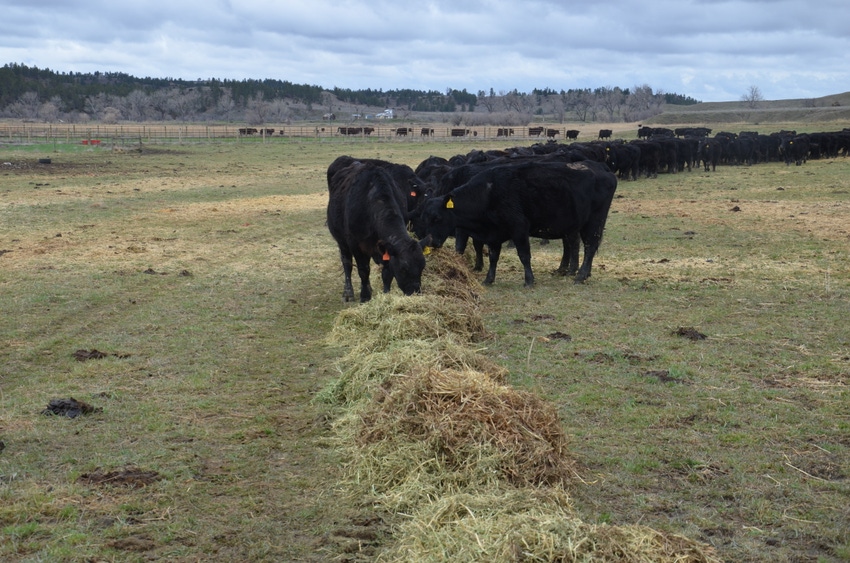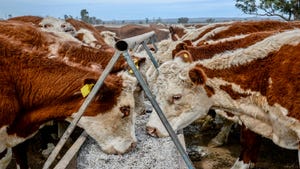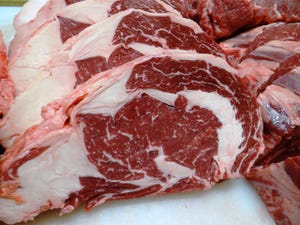Beef sustainability: It matters to your consumers and it matters to you
Consumers are talking about you and what you do. Here’s how the beef business responds.

Many of you no doubt read Amanda Radke’s blog yesterday highlighting facts on cattle and climate change. It’s an issue that BEEF has covered quite a bit in the past. And while you may wonder why we’re singing to the choir, expect ongoing discussion from us in the future.
Why? Because your consumers are talking about it. A lot. And if it’s important to consumers, it’s important to you.
And misinformation abounds. Yesterday, I got a news release from a college of veterinary medicine announcing it had received a grant to research the microflora in a cow’s gut in an effort to reduce methane emissions. The news release used the long-ago debunked number that cattle production in the U.S. accounts for 25% of all methane emissions.
Had the researchers at this veterinary college done even a simple literature review, they would have discovered what Amanda reported yesterday—scientifically-credible research shows cattle contribute 3.6% of the methane produced in the U.S.
RELATED: Yes, eating meat affects the environment but cows aren't killing the planet
According to Madlynn Ruble, who grew up on a cow-calf outfit in Minnesota and now is director of reputation management with NCBA, consumers are talking about many aspects of what you do. She knows this because NCBA, as a contractor with the Beef Checkoff, monitors up to 200 different topics every day in their digital command center.
The digital command center is a marvel of technology, staffed by two very sharp people who understand that magical and mystical world that is often foreign to many of us. They monitor not just traditional broadcast and print media, but follow social media as well to see who’s talking about beef, what they’re saying, where they’re saying it at and who they are saying it to.
Many of the things the command center monitors can be lumped under the umbrella of sustainability. While many of us may scoff at the whole idea of sustainability, your consumers aren’t scoffing at all. To them, it’s important. But sustainability isn’t the number one topic that consumers and others are talking about right now.
“Consistently, red meat and cancer stand out as the number one concern that consumers have. It’s number one on our issues monitors, number one on Google and on our website,” she said during a recent Beef Checkoff media symposium on sustainability.
READ: Beef's sustainability advantage
“Number two, antibiotics tends to spike anytime we see a new report. Sustainability is number three, but the conversation is consistent. We see spikes but it’s a pretty consistent high level of chatter.”
The spikes she refers to swirl around methane and other emissions produced by animal agriculture. Then the question becomes, should the beef business respond directly or not? That decision is made every morning as staff gathers to analyze the information coming from the digital command center.
Sometimes, the answer is yes and Ruble and her team actively and aggressively respond directly. Sometimes the decision is to use those same social media channels to drive people to various information channels the Beef Checkoff has established. These include the beefitswhatsfordinner website and a Medium channel which houses articles on the many and varied aspects of beef sustainability.
And sometimes, the decision is to let the conversation just happen. A great example is the IARC cancer report that came out several years ago.
“What actually happened, through our monitoring systems where we can watch second by second, {consumers} were actually saying this is a bunch of baloney,” Ruble said. “{They were saying} ’Don’t take away my steak. Don’t take away my bacon.’ So we knew we could stay out of it and support those messages that were happening on their own rather than taking a really strong stance.”
While the work the beef checkoff is doing on your behalf may not be visible from the ranch gate, make no mistake—that work is ongoing and is crucial. When staffers get up every morning with the singular and focused purpose of knowing the chatter about what you do and then responding appropriately, you can get up every morning with the singular and focused purpose of producing the best beef in the world.
Seems like a pretty good arrangement to me.
About the Author(s)
You May Also Like



